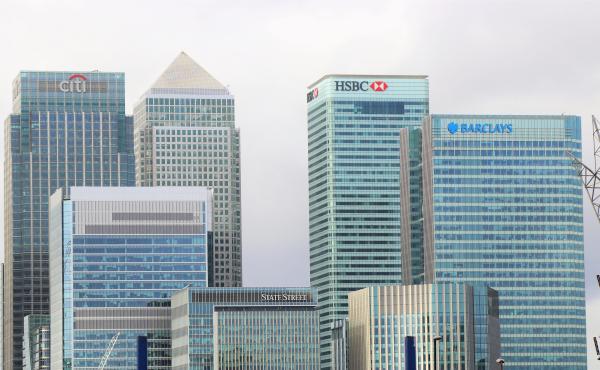
The ECGI blog is kindly supported by

Systemic disruption in the banking industry
The world’s financial system has once again failed to properly assess material risks accruing from the banking industry to protect depositors, investors, and the businesses they serve.
At least two banks in the United States have failed, resulting in bailouts and potential losses in excess of $3 billion in early 2023. Global banks are now seeking assurances, with at least one takeover of a bank by another wiping out shareholder investments in the acquired bank.
Such failures once again demonstrate that a lack of strong corporate governance practices ultimately impacts long-term corporate value, upon which we all rely.
The ICGN Global Governance Principles clarify an investor’s perspective on pillars which are the foundations of effective corporate direction and control, such as fairness, accountability, responsibility and transparency, thus helping boards effectively manage systemic risks and support sustainable business practices.
Sadly, the warning signs related to the latest collapse have been in evidence and include:
- Commercial decisions that align with short-term interests at the expense of long-term corporate viability.
- Sell outs of stock by key executives, share buybacks, large executive compensation packages lacking clear ties to risk assessments and long-term performance, and limited or no clawback policies for ill-gotten executive gains.
- Limited oversight by regulatory authorities for speculative deals beyond the public markets, investment strategies with excessive leverage and reporting requirements on material and non-material financial risks.
- Financial disclosures and public statements that do not match the reality of short and long-term losses that were not disclosed or hidden in financial records.
Global regulators are once again calling for greater oversight of banking institutions and executives to address inadequacies and curtail risky behaviour that negatively impacts the global financial system. Whilst an increase in interest rates in regulated markets has contributed towards this recent bank failure, a more fundamental cause of the disarray is hubris on behalf of bank executives and wishful thinking by the corporate boards that oversee them.
Essentially this amounts to a situation where strong returns on financial stocks led to confidence that the internal controls risk management requirements (implemented after the 2008 Global Financial Crisis) were no longer necessary. A continual rollback of regulations and diminished oversight has allowed smaller banks to avoid the corporate “burden” of performing stress tests to be disclosed in regulatory filings.
ICGN is calling again for a global economic and financial structure that serves investors, businesses, the economy, and wider society. Specifically:
- Stronger corporate governance practices to be adopted by boards as clarified in the ICGN Global Governance Principles. Boards must focus on their fiduciary duties to shareholders and relevant stakeholders for preserving and enhancing sustainable value over the long-term including oversight of risk assessment, management, and mitigation.[1]
- Boards of directors must identify and analyse the known and potential risks that cut across their lending portfolios, capital allocation strategies, leverage position and commitments. Such risks have the potential to create perverse incentive structures for executive compensation. Performance measures in incentive-based plans should ensure there are no rewards for taking inappropriate risks at the expense of the company, shareholders, and stakeholders. Incentive plans should enable the company to withhold the payment of any sum (‘malus’), or recover sums paid (‘clawback’), in the event of serious misconduct or a material misstatement in the company’s financial statements.[2]
- Assertive action should be taken to reform the weaknesses in regulatory and legislative oversight, including reporting requirements for stress testing and the re-establishment of risk and oversight committees for smaller and regional financial institutions, and higher capital requirements with more robust leverage ratios. A board level risk committee can be an effective mechanism to bring the transparency, focus and independent judgement needed to oversee the company’s approach to risk management and internal controls. Both boards and risk committees should be informed through a company’s enterprise-wide internal control and risk management system.[3]
- Regulators should initiate enforcement actions to uncover ill-gotten gains (sales of stock or excessive compensation) and return them to investors. Regulators must have the information necessary to determine whether reported financial disclosures and a company’s public statements match or may have misled investors.
For investors to be effective in holding companies to account, they must be afforded robust shareholder rights as legitimate owners. When failing companies become the targets of acquisitions, investors with holdings in the target and acquiring company should have the right to vote on such takeovers as part of their fiduciary duties. Moreover, investor confidence is necessary to instill support for revised business continuity plans in the face of this crisis.
The lessons here for investors are that reliance on external ratings and rankings, without internal oversight and due diligence, can lead to a false sense of security. This therefore requires investors themselves to incorporate a greater review of governance, including the effectiveness of board decision-making and composition, into their wider due diligence approach to stewardship.
-------------------------
By Carol Nolan Drake, J.D. Governance and Stewardship Policy Manager, ICGN
If you would like to read further articles from the 'Banking Crisis 2023' Blog edition, click here.
The ECGI does not, consistent with its constitutional purpose, have a view or opinion. If you wish to respond to this article, you can submit a blog article or 'letter to the editor' by clicking here.
[1]ICGN Global Governance Principles, 2021, pp. 8-9.
[2] ICGN Global Governance Principles,2021, p. 21.
[3] ICGN Global Governance Principles, 2021, p. 25. See also ICGN Guidance on Corporate Risk Oversight, 3rd Edition, 2015; ICGN Viewpoint on Corporate Risk Oversight Committee view on obstacles and questions in risk oversight, May 2014.





